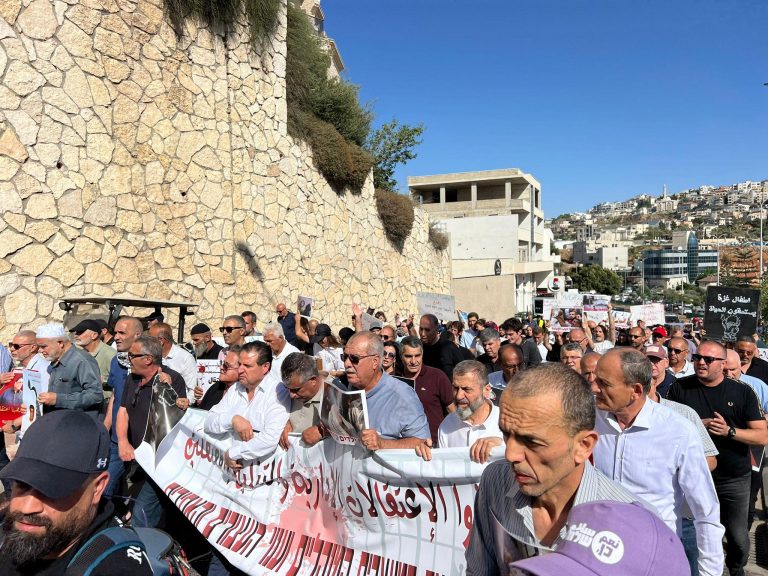This Palestinian Town Is Reviving The Spirit Of Struggle In ’48 Palestine
As images of burned children, starving families, and bombed hospitals in Gaza become the constant soundtrack of daily life, the Palestinian communities that survived the Nakba and stayed in the lands that were occupied by Israel in 1948 (hence called “’48 Palestinians”), are filled with anger, frustration, and a sense of hollowness and disempowerment. Against the general paralysis, Umm al-Fahm, the main Palestinian city in “the Northern Triangle region,” stands out.
Palestinian activists in the town, united around the local “popular committee,” keep trying to break the barriers of repression and fear that have taken hold in their community since October 7. The last attempt was on Saturday, May 24.















